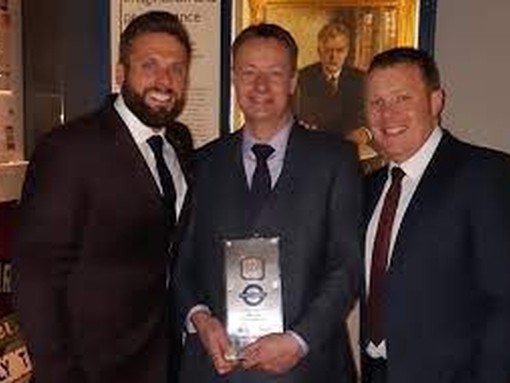
How to... bridge the green skills gap
Energy Minister Greg Hands recently co-chaired the first meeting of the UK’s first-ever dedicated group (The Green Jobs Delivery Group) for creating UK green job opportunities. Announced in October 2021, the UK Government’s net-zero strategy aims to support up to 480,000 highly skilled green jobs by 2030 by ‘levelling up’ and becoming zero carbon by 2050.
The transition to net-zero will create vast economic opportunities but what about the people and the skills needed to realise it? While job postings requiring green skills grew at 8% annually over the past five years, the share of green talent has only grown 6% over the same period.
Commentary provided by Nabeel Ashraf, Associate Director at Morson Talent

“With the launch of the 10-point plan and several other initiatives we are at the start of the ‘Green Industrial Revolution’. With a promise of 250,000 green-collar jobs and projects such as battery plants, carbon capture, small nuclear reactors and other clean energy projects, the UK job market is set to fundamentally change. This is going to be critical in helping us reach our goals of using clean energy and reducing our carbon footprint, a forecast that will eventually support two million green jobs. Although green-collar jobs are not all necessarily engineers; engineering and innovation have a fundamental role to play in this green industrial revolution.
My concern is how we will create a workforce of skilled workers for these green-collar jobs? We’re experiencing challenging market conditions in engineering currently, the need for engineering talent is at an all-time high but we’re experiencing a talent shortage. So, how will we cope with the additional demand?”
The UK currently does not have the skills to deliver the Government’s green agenda. So, in the shadow of environmental disaster, what solutions can the industry employ to bridge the green skills gap and stabilise our future?
1. Education and apprenticeships
A key route to enabling the transition to a ‘green economy’ is education. The Environment Audit Committee (EAC) identified that in schools, education on climate change and environmental sustainability is limited to a few subjects. They recommend that environmental studies are included across all subjects to allow students to gather a greater breadth of knowledge and understand how their chosen field can be useful in tackling environmental challenges.
Educators agree, a report by the Royal Society of Chemistry (RSC) found that two-thirds of secondary chemistry educators think that their subject curriculum should have more content on climate change and sustainability, this number rises to nine in ten for primary educators. However, as of yet the government is yet to commit to any changes to the national curriculum despite the Education Secretary’s commitment in November 2021 to ‘put climate change at the heart of education’.
Apprenticeships are regarded as the fastest way to bring new skills into the workplace. In November 2021, following the COP26 summit, the Institute for Apprenticeships announced they are “100% committed to delivering world-class skills training to support the emerging green economy and encourage more environmentally friendly working practices.” Currently, environmental and climate issues are not embedded across apprenticeships. Working to add such issues to an apprentice’s learned skillset would equip them to apply their knowledge directly to their jobs and help address employer green skills gaps.
“We need to attract the next generation of engineering talent, through schools, universities and apprenticeships. These should be followed with the incentive of a career with a purpose, to make a difference to the future world we live in.”
2. Upskilling
The Green Alliance, an independent think tank and charity focused on ambitious leadership for the environment, states that 80% of the people who will be employed in 2030 are already in the workforce. Therefore, there is a large population who could be retrained and upskilled in zero-carbon to enable the UK to meet its net-zero targets.
However, there are significant financial and reputational risks for businesses that commit to investing in skills and training. To mitigate these risks Green Alliance suggests the Government introduces a ‘green skills super deduction’ a tax relief for any business that invests in training and upskilling staff for green jobs, similar to the super deduction policy introduced by Rishi Sunak in the 2021 Spring Budget.
Industries across the UK are facing huge talent challenges when trying to boost the green capabilities within their sector. For the transport industry, the UK’s largest carbon-emitting sector, the challenge is particularly difficult. There are set to be 175,000 new jobs created within transport alone over the next 10 years, but many of these jobs will require new skills in battery manufacturing, electrification engineering and the development of sustainable aviation fuels. It is hoped that many of the new initiatives rolled out by the UK Government will help pacify the talent demand and enable a fast track to an upskilled workforce.
3. Lead with diversity and purpose
“Here at Morson, working with Rolls Royce SMR has shown us how innovative engineering projects with a purpose of making a difference i.e. producing clean energy, can attract the very best engineering talent from around the UK. We know that people of all ages, socioeconomic backgrounds, races and locations are motivated by a career with purpose and cause.
Innovation and engineering have a central role to play in reducing our carbon footprint and supporting our net-zero ambitions. Not only must we develop courses that support the green industrial revolution but we need to promote the positive impact of working in this field to attract the next generation of talent.
Capturing imagination is going to be one of the most important components in helping us bridge the skills gap.”
It is well documented that the renewable industry, and engineering as a whole, lack diversity. For example, in the UK, black and minority ethnic (BME) engineers make up 27% of engineering graduates, however, they make up only 7.8% of professional engineers. In addition, despite making up 48% of the global workforce, women currently only account for 22% of the labour workforce in the oil and gas sector and 32% in renewables, with gender gaps varying across the different energy sub sectors.
Green energy organisations face stiff competition from their peers in the acquisition of top talent. It’s a candidate led market and businesses looking to diversify their talent pool need to scrutinise their employer brand, working arrangements, benefits packages and community engagement tactics to ensure they promote a proposition which is truly inclusive and attractive to the diverse population who demand more from employers. Ronan Cassidy, Shell’s Chief Human Resources and Corporate officer, said: “This is a competitive and dynamic market, and to attract the best talent, a competitive package alone is not enough; you need to have a credible and meaningful strategy and show how people can make a difference.”
4. Transitional skills
Despite the intention to employ hundreds of thousands in ‘green’ jobs, there is a significant lack of experienced technical skills within the industry. To meet these requirements, we should look to existing industries and the wealth of knowledge their workforces can offer.
The oil and gas industry is already a huge source of talent for the clean energy sector, particularly in the management and technical areas of the sector. In addition, engineers with experience in offshore structures, specific safety training, leadership and management experience will be in high demand as the clean energy industry looks to grow and siphon talent from traditional energy sectors.

5. Investment
There is more that can be done within the industry to facilitate the green skills evolution. For us to truly enter into a green economy, a holistic approach to strategy should be encouraged. Many sectors recognise they need to invest now to prepare for a green future.
Manufacturing has taken heed and, according to a Make UK survey, is making the required efforts to expand upon the green skills within the sector. In the last 12 months, almost two-thirds of manufacturers have identified and equipped their existing workforce with the skills they need to manufacture sustainably.
To enable this more widely organisations are calling for the Government to help provide educated, skilled workers in the correct fields. The UK construction industry is just one example of a sector desperate for investment in the upskilling and recruitment of workers who meet the requirements of the UK net-zero plan.
Where are the biggest green skill gaps?
Highly skilled engineers with the necessary experience in designing and creating products for the circular economy.
Skills needed in recycling products and finding new alternatives to carbon-based materials.
So, how to bridge the green skills gap?
Over the past decade, the world has come to terms with the need for action to tackle climate change and momentum is gathering at pace. The transition of the economy to a more circular and equitable one is underway. Companies of all sizes are conscious of their environmental impact and are looking to attract talent who can help them transition to more green ways of working.
Government, education and industry must work collaboratively to address the green skills gap facing the UK currently. The is no magic fix, but a collective approach will allow us to progress responsibly and sustainability. The promotion of new education and skills policies, a refined focus on diversity, plus a consolidated approach to investment will enable long-term economic growth across the UK.
Looking to go green or already got the skills? Take a look at our latest jobs and find your next ‘green’ job today.
Index: What are green jobs and green skills?
Green jobs are any role required in a net-zero, resource-efficient society. However, the UK government takes a slightly narrower approach to this definition, green jobs are simply those involved in lowering greenhouse emissions. Green skills, according to the UNIDO (United Nations Industrial Development Organisation), are the knowledge abilities, values and attitudes needed to live in, develop and support a sustainable and resource-efficient society. Essentially green skills are the competencies that workers need to deliver the goals of green jobs.














